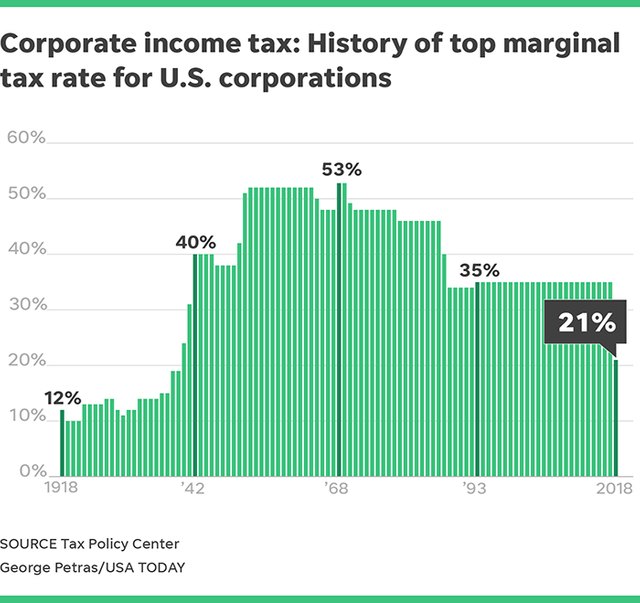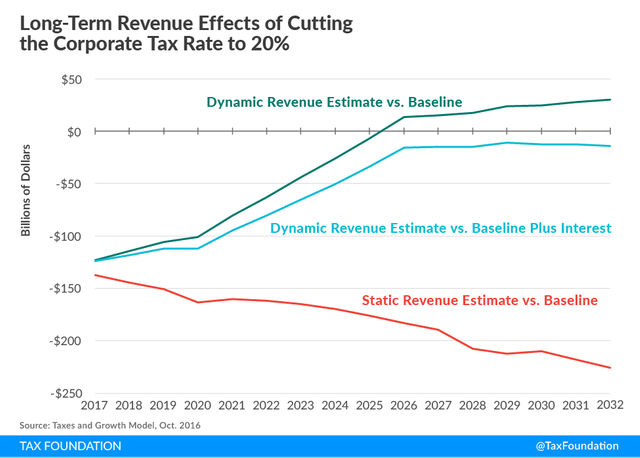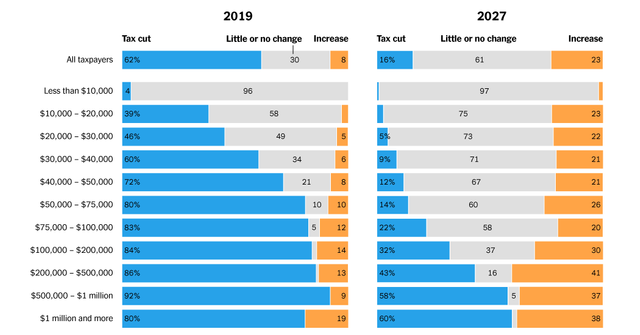One Bit News - Economy - Issue 15
7 years ago by onebitnews (64)
$40.20
- Past Payouts $40.20
- - Author $30.40
- - Curators $9.80
34 votes
- + susanne: $16.670 (100%)
- + tommyhansen: $7.588 (100%)
- + barbro: $5.751 (100%)
- + babsboard: $2.668 (100%)
- + siggjo: $1.491 (100%)
- + onebitnews: $1.252 (100%)
- + momar: $1.048 (100%)
- + gyldenhorn: $0.946 (100%)
- + valth: $0.755 (100%)
- + tbnfl4sun: $0.540 (100%)
- + flatman: $0.420 (100%)
- + partywalrus: $0.295 (100%)
- + jeroll: $0.256 (100%)
- + mers: $0.099 (100%)
- + k3nb0b: $0.095 (100%)
- + alvheid: $0.053 (100%)
- + idigit: $0.039 (100%)
- + everydaycoach: $0.039 (100%)
- + meldesixym: $0.035 (100%)
- + redouanemez: $0.034 (100%)
- … and 14 more






The only thing we can see is the tendency to deterioration that leads to economic insupportability.
If the current trend, ie a continuous increase in inequality and debt, continues, then its unsustainability will actually collapse the system but no one can predict the date ....
How long can insurance and retirement funds hold with zero rates and a stock market that does not go up?
Downvoting a post can decrease pending rewards and make it less visible. Common reasons:
Submit
Between 2000 and 2006, US real estate prices rose nearly 60%
in nominal terms before starting to fall in the summer of 2007.
?? This rise in prices was the result of a sharp rise in demand for housing and a relative scarcity of supply due to the lack of available land in the most urbanized states and perhaps lack of competition. in the construction sector. In addition, demand for housing had risen sharply for reasons of unsustainable nature: a relaxation of the conditions of access to mortgage credit, excessive expectations of real estate price increases and a durably accommodative monetary policy.
the following elements are taken from an article published in 2008 entitled "The determinants of long-term interest rates in the United States and the euro zone: a multivariate approach" and co-authored by Julien Idier, Caroline Jardet and Aymeric de Loubens. It examines the factors influencing US and European long-term interest rates between 1986 and 2005. These rates show a downward trend over the past fifteen years. This can be explained by traditional fundamentals such as declining macroeconomic volatility, low inflation expectations, or increased transparency of monetary policies.
Nonetheless, long-term interest rates show surprising recent momentum in the United States and the euro zone, for various reasons, in light of their traditional determinants. In particular, in the United States, long-term interest rates have remained constant around 4% despite a widening of fiscal deficits since 2002, a tightening of monetary policy started in mid-2004, the improved growth prospects over this period. In the euro zone, the downward trend in long-term rates is less surprising than in the United States. Between June 2003 and November 2005, the European Central Bank (ECB) kept its key rate at 2%, with GDP growth between 2% and 3.5%. However, the concomitant trend of downward trends suggests that a possible transmission of the low level of interest rates from the United States to the euro zone may be taken into consideration.
Relatively to the question of "how the goverment are starting to raise taxes" these are somme points explaining the causes behind which the public monetary authorities proceed to the increase of the taxes and the mechanisms which are at their disposal.
When a state wants to reduce its fiscal deficit, it has two options: increase tax revenues while keeping spending constant or reducing public spending to stable tax revenues. The second choice is usually the most difficult to operate: public expenditure is sometimes structural (such as the payment of civil servants' salaries) and therefore incompressible in the short term.
This is why, when we try to reduce public deficits, we are most frequently moving towards taxation. This is all the more easy since, a priori, a rise in taxes translates almost instantaneously into an increase in tax revenue. Therefore, if the state does not increase its expenditures, the additional revenue can fill part of the deficit.
But this reasoning is only valid in the short term. However, the medium and long-term repercussions of such a policy must also be taken into account. Businesses and households are not indifferent to tax increases. They adapt their behavior accordingly, which has an impact on tax revenues.
For example, one thinks of the famous formula commonly associated with the work of the economist Arthur Laffer: "Too many taxes kill taxes!" According to him, for a given amount of tax revenue, there are two possible tax rates (see graph 1): a low rate and a high rate - and it is naturally advisable to choose the lowest. Otherwise, it would result in a general discouragement of economic agents - they no longer have motivation to work or invest more because of the excessive taxation of the extra income procured. Such a situation would have a negative impact on productivity and growth and, as a result, affect the level of government revenue in the long run.
Downvoting a post can decrease pending rewards and make it less visible. Common reasons:
Submit
A US banking conspiracy to take control of Russia
New York business bankers staged a "financial coup" against Russia in the late 1990s, Martin Armstrong, a world-renowned financial analyst, said in an interview with Sputnik in Germany.
The main goal was to make Russia dependent on US money in the long run, he said.
According to Armstrong, billionaire and Russian oligarch Boris Berezovsky played a key role in this process. The analyst also said that the head of the National Bank of New York Republic and the Hermitage Capital fund, Edmond Safra, was the one who financed the entire lace.
Once the transfer was completed, Safra informed the US government and the FBI of Yeltsin's alleged money-laundering activities via the Bank of New York.
"Then the prosecutors immediately went to the Bank of New York and threatened Yeltsin and said," Look, you resign and you put this guy Berezovsky and everything will be fine. "And Yeltsin then realized that everything was arranged. "
According to Armstrong, it was then that he turned to the young Vladimir Putin, who confiscated all the assets of Hermitage Capital in Russia.
Downvoting a post can decrease pending rewards and make it less visible. Common reasons:
Submit
If we are to think that the blockchain is decentralized, how can the US government imposed the would be penalties to taxpayers who have dealt in any crypto transactions? I was under the impression that there are no rules that govern the crypto businesses in the US except for the Futures which they now have introduced in the NYSE.
Downvoting a post can decrease pending rewards and make it less visible. Common reasons:
Submit
Hello @Mers
No country in the world need rules that govern the crypto businesses, to claim that you must pay your taxes. It is the tax rules in every country that says if you have to pay tax on your income. So you have to obey the tax laws in the country you live in.
The tax laws on income are there already.
Downvoting a post can decrease pending rewards and make it less visible. Common reasons:
Submit
Alltid morsomt å lese betraktninger om økonomi. Man trenger ikke være enig om alt, slik @tbnfl4sun påpeker, men man lærer jo noe uansett.
Boligmarkedet er spesielt. Boligen er våre største formuesobjekt og vi legger mye egenkapital og lånevilje i dem. Boliger er lett å selge, men samtidig så trenger de ikke være det. Her ligger et potensial for å bli sittende fast i en økonomisk hengemyr. Heldigvis gjør den lave renta at risikoen pr nå er lav.
Vi blir nok å se en korreksjon i det markedet, hvertfall enkelte steder. De store byene vil nok mest sannsynlig ha en høyere og jevnere stigning enn minder steder.
Jeg bor i en liten by som har høye boligpriser. Relativt høye da- ikke Oslo priser. I nabobyen ligger en normal enebolig ca 1 million under prisene i vår by. Jeg ser ingen god grunn til at vår småby skal ha så høye priser. Vi har lett etter bolig en stund, men har nå bestemt oss for å la det hvile litt. Så jeg håper på et stort bolig krasj :-)
Downvoting a post can decrease pending rewards and make it less visible. Common reasons:
Submit
to simplify the federal tax code with extreme complexity, while proposing a historic drop in the tax rate, both for businesses and for American households.



In detail, it should allow an average family to save $ 1182 in taxes a year.
Corporate tax lowered to 20%
Deductions from mortgage interest will also be reduced, and will only apply to loans of less than $ 500,000.
It Started as a Tax Cut. Now It Could Change American Life
Downvoting a post can decrease pending rewards and make it less visible. Common reasons:
Submit
I have followed Martin Armstrong, I don't agree with everything he says but I do believe that this housing market is getting ready to drop off a cliff! One thing Martin Armstrong is known for is our demographics. His predictions are based on the population aging and what it will do to our economy.
As far as trading crypto currencies go, I'll just say it's going to be an interesting year!
Downvoting a post can decrease pending rewards and make it less visible. Common reasons:
Submit
Hi @Tbnfl4sun

It was interesting to hear that you have followed Armstrong. Don`t you do that any more?
And what subjects do you think he make wrong decitions?
Some of us here in Norway,I think it is few of us, follow him closely and it seems he, or his AI as he says, are prety good to come up with the right conclusions.
Do people in general have some other opinions about him in the US?
Kindest regards
@Gyldenhorn
for
@Onebitnews
Downvoting a post can decrease pending rewards and make it less visible. Common reasons:
Submit
I concur with Martin Armstrong on the economy, I like that he will talk about things that you won't hear on mainstream media like the coming derivatives implosion and the insolvency of the banks. He don't believe people will go to gold for their flight to safety, he has been right so far, but I disagree In the long-term.
Other people I like to follow are Peter Schiff from Euro Pacific Capital, Gerald Cilente, publisher of trends in the news and Michael Pento with Pento portfolio strategies.
Keep on stacking!
Downvoting a post can decrease pending rewards and make it less visible. Common reasons:
Submit
Forty virtual currencies have now crossed the threshold of one billion euros of capitalization, whereas they were only seven 7 months ago. Some, like Cardano, even weigh 15 billion euros three months after their creation.
is it going to end badly or not? if the legalization of currencies always remain in an ambiguities.
Downvoting a post can decrease pending rewards and make it less visible. Common reasons:
Submit
The fiscase balance sheet has been on life support for new decision of Govt. So Govt should be supportive about it.
Downvoting a post can decrease pending rewards and make it less visible. Common reasons:
Submit
In Algeria, the overall vision emerging from the new provisions of the 2018 Finance Act shows that its impact on the real estate sector as a whole remains minimal, said Lotfi Ramdani, director of Lkeria.com real estate website and expert. real estate, during the 6th edition of the real estate awareness days, on the provisions of the law of finance 2018 on real estate organized at the headquarters of the FNAI in Algiers.
According to him, the various provisions of the Finance Act 2018 affect only the transactional part, "in the absence of measures in connection with construction and direct or indirect financing".
The speaker gave a table of the advantages and the weak points of each provision brought by the law of finances 2018. It is among others the dynamisation of the market of the real estate transactions thanks mainly to the cession of the goods of the State, without forget the gain for the public treasury in terms of bonuses in the context of the non-transferability.
With regard to the adjustments introduced on the tax on the surplus value, it was noted that this new provision was in contradiction with the encouragement of the mobility, wanted within the framework of the suppression of the non-transferability of the public housing .
The speaker will say that a significant number of the provisions introduced tended to increase the liquidity pool of the Treasury, through the upward revision of the rates of certain property taxes, the widening of the base of these taxes and taxes as well as the increase in the price of real estate sales to transit through the Treasury, for a certain time.
Downvoting a post can decrease pending rewards and make it less visible. Common reasons:
Submit
Downvoting a post can decrease pending rewards and make it less visible. Common reasons:
Submit
Downvoting a post can decrease pending rewards and make it less visible. Common reasons:
Submit